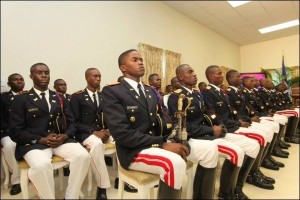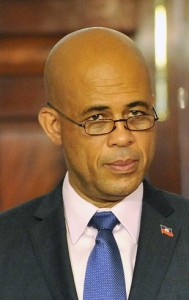by Kim Ives. Originally posted to Counterpunch
On Friday, January 22, many thousands marched over ten miles up Port-au-Prince’s Delmas road to Pétionville then back down the Bourdon road to the capital’s central square to demand new elections and denounce a government ban on demonstrations that was to begin that midnight.
The marching, chanting multitude scared the daylights out of Haiti’s Pétionville elite, loudly pouring into the narrow, tony streets of the wealthy mountain enclave while young men scattered large rocks and telephone poles across roadways and set aflame cars and columns of tires.
 The tumultuous day forced Haiti’s Provisional Electoral Council (CEP), six of whose nine members have now resigned in disgrace or disgust, to indefinitely cancel the third round of widely denounced elections, which had been scheduled for Jan 24.
The tumultuous day forced Haiti’s Provisional Electoral Council (CEP), six of whose nine members have now resigned in disgrace or disgust, to indefinitely cancel the third round of widely denounced elections, which had been scheduled for Jan 24.
Armored vehicles of the CIMO squads of Haiti’s national police shadowed the marchers on sidestreets throughout the afternoon, occasionally engaging them with shots in the air or teargas, but mostly they put out fires with their water canon trucks and made a show of force in front of ministries and embassies the marchers passed.
Despite the CEP’s announcement, the Haitian masses have continued marching in cities throughout Haiti on every day since last Friday’s historic march, emboldened by their victory and calling for the immediate departure of President Michel Martelly and the United Nations military occupation troops known as MINUSTAH.


